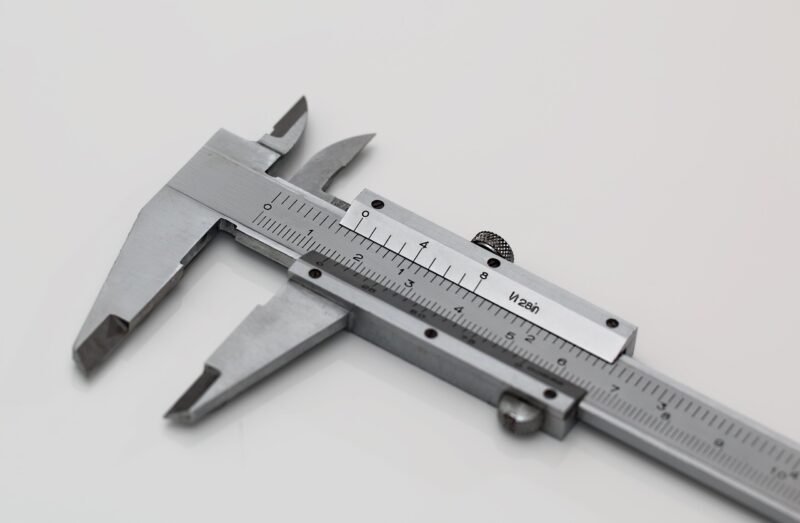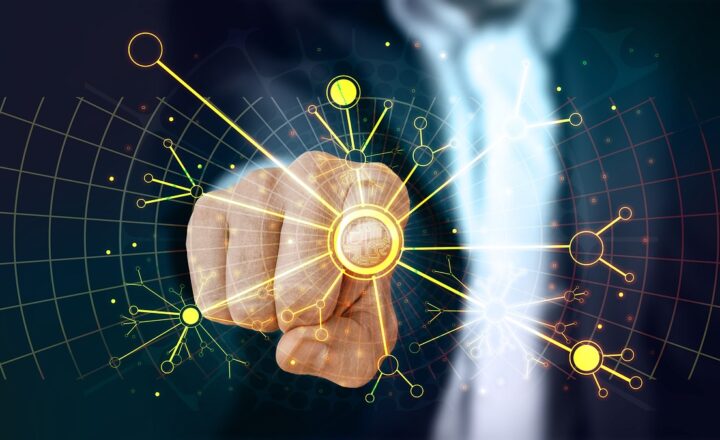The Importance of Accurate Measurement Systems in Advancing Human Knowledge
November 12, 2024

In an increasingly complex world, the ability to measure with precision has transformed the landscape of human knowledge. From the dimensions of the universe to the intricacies of human health, accurate measurement systems serve as the foundational bedrock for scientific inquiry, technological innovation, and informed decision-making. In this article, we explore the importance of accurate measurement systems, their historical development, their implications in modern society, and future trends in measurement technology.
1. Understanding Measurement and Its Significance
Measurement is the process of quantitatively assessing physical quantities in a consistent manner. Whether it’s distance, weight, time, or temperature, measurements allow us to describe the world around us in precise terms. The significance of measurement systems extends far beyond mere numbers; they are essential in the following ways:
- Scientific Progress: Measurement is a central aspect of the scientific method. It allows for the objective validation of hypotheses and theories through empirical data. Without accurate measurements, research findings may lack reliability and reproducibility.
- Technological Advancement: Every breakthrough in technology is predicated upon precise measurements. Whether it’s developing new medical devices, conducting space explorations, or creating cutting-edge electronics, accurate measurements fuel innovation.
- Global Standards: Accurate measurement systems help establish global standards essential for international trade, communication, and cooperation. Consistency in measurement ensures fairness and equity across borders, thus fostering scientific collaborations and economic growth.
Clearly, accurate measurement is integral to our advancement in various fields, but its significance is rooted deeply in history as well.
2. A Brief Historical Overview of Measurement Systems
The roots of measurement can be traced back to ancient civilizations, where early humans relied on simple qualitative assessments such as hand spans and foot lengths. However, as societies advanced, so did the need for more consistent and standardized systems.
Key milestones in the evolution of measurement include:
- The Metric System: Developed in France during the late 18th century, the metric system introduced a decimal-based measurement system that is used globally today. It established universal standards for mass, length, and volume, thus simplifying scientific discourse.
- The International System of Units (SI): Established in 1960, the SI system consists of seven base units that provide a consistent framework for scientific measurements. It represents a culmination of centuries of efforts to unify diverse systems and enhance communication in scientific research.
- Technological Innovations: The introduction of tools such as the pendulum clock, chemical balances, and more recently, digital sensors and atomic clocks, has allowed measurements to become more accurate than ever before, leading to exponential growth in scientific knowledge and understanding.
As measurement systems evolved, numerous disciplines began to rely on them, leading to significant advancements in various fields. In contemporary society, measurement impacts nearly every aspect of our daily lives.
3. The Role of Accurate Measurement in Various Fields
Accurate measurement plays a critical role in many disciplines. Here, we explore a few fields where measurement has a direct impact:
3.1. Healthcare
In healthcare, accurate measurements are vital for diagnosis, treatment efficacy, and patient safety. From measuring vital signs such as blood pressure and body temperature to more complex metrics like blood glucose levels, accurate data ensures that healthcare providers can make informed medical decisions. Innovative measurement technologies, such as wearable devices, are also enhancing patient monitoring and chronic disease management, representing the forefront of personalized medicine.
3.2. Environmental Science
In environmental science, accurate measurement systems are crucial for monitoring climate change, pollution levels, and biodiversity. Technologies such as remote sensing, environmental sensors, and geographic information systems (GIS) provide actionable data that informs policies to protect our planet. By enabling researchers to make precise measurements, they can effectively analyze trends and develop strategies to mitigate environmental impacts.
3.3. Engineering and Construction
Accurate measurements are paramount in engineering and construction. From surveying land to ensuring precision in manufacturing processes, measurements impact everything from safety standards to structural integrity. Modern construction employs advanced measurement techniques such as laser scanning and 3D modeling, which minimize errors and help streamline projects, ensuring on-time and on-budget delivery.
4. The Challenges of Inaccurate Measurement
Despite the importance of accurate measurement systems, various challenges can lead to inaccuracies. Here are a few factors that contribute to measurement errors:
- Human Error: Subjectivity in reading instruments or recording data can result in inaccuracies, emphasizing the need for automated systems where possible.
- Instrument Calibration: Instruments must be regularly calibrated to ensure accuracy. A lack of regular maintenance can lead to false results and misunderstandings in data interpretation.
- Environmental Factors: Changes in temperature, humidity, or pressure can impact the accuracy of measurements. For example, a thermometer’s calibration may vary in different environments, leading to discrepancies in readings.
Addressing these challenges is crucial for maintaining the integrity of measurement systems and the conclusions drawn from them. As technology advances, new methods of mitigating these errors continue to emerge.
5. Future Trends in Measurement Technology
Looking forward, measurement technology is poised for significant advancements that will further enhance accuracy and reliability. Some emerging trends include:
- Smart Sensors: Incorporating IoT (Internet of Things) technology allows for real-time data collection and transmission, enabling immediate analysis and decision-making. Smart sensors are revolutionizing industries, from manufacturing to agriculture, by providing precise data streams that drive efficiency and innovation.
- Artificial Intelligence (AI): AI is increasingly being integrated into measurement systems to enhance data analysis capabilities. Through machine learning algorithms, systems can recognize patterns, identify anomalies, and predict outcomes based on complex data sets, leading to improved decision-making processes in real-time applications.
- Nanotechnology: Advancements in nanotechnology are paving the way for developing ultra-precise measurement systems. These technologies hold the potential to revolutionize fields such as medicine, materials science, and nanotechnology itself, enabling unprecedented levels of accuracy and insights.
The fusion of these technologies promises to redefine the accuracy of measurement systems, enabling further advancements in human knowledge and application.
Conclusion
Accurate measurement systems are fundamental to the progress of human knowledge across various domains. They enhance our ability to collect data, inform research, and ultimately contribute to societal growth. As we look towards the future, emerging technologies will continue to evolve measurement systems, providing even greater accuracy and reliability. By embracing these advancements, we can ensure that human knowledge continues to expand in meaningful and transformative ways that benefit society as a whole.
If we appreciate the vital role that precise measurements play, we emphasize the importance of nurturing this field for future scientists, engineers, and innovators to harness effectively. The more we invest in accurate measurement systems, the further we can advance our understanding of the universe and improve quality of life on our planet.







